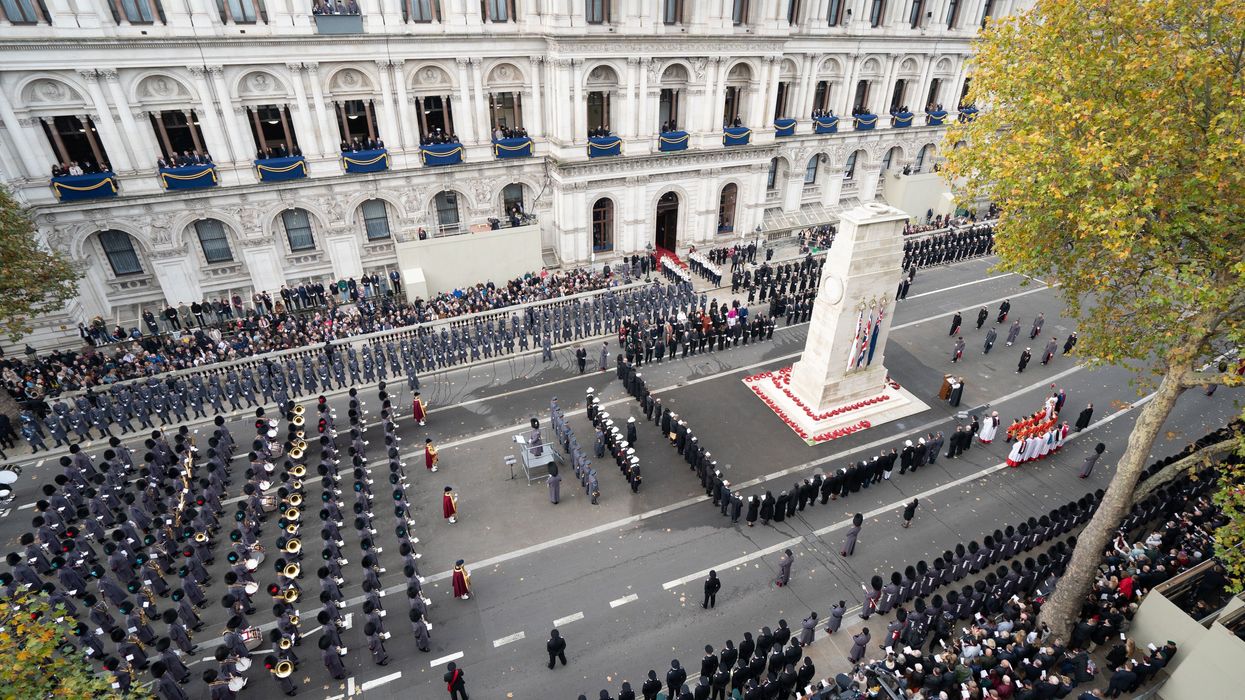
The Cenotaph is the centrepiece of Britain’s commemorative events
Ahead of the Remembrance ceremonies this weekend, there’s been a lot of talk about the Cenotaph.
In particular, politicians have discussed whether a planned march calling for a ceasefire in the Isreal-Hamas war will disrupt the usual Remembrance ceremony at the spot.
Any fears seem to have been allayed by the march’s organisers, who say it won’t start until nearly two hours after the ceremony in London, and that the route will not go down Whitehall.
But what actually is the Cenotaph, and why is it important?
The stone column, which sits on Whitehall in central London, is the centrepiece of Britain’s commemorative events since the First World War.
The word Cenotaph comes from ancient Greek, and it literally means “empty tomb”. It symbolises the devastating loss of life suffered during the war, and is dedicated to “The Glorious Dead”.
There are no names on the column. Instead, individuals can ascribe their own meaning to the memorial, allowing them to pay their respects for anybody who died for their freedom, whether they have a known grave or not.
Each year, remembrance ceremonies hold a two minutes’ silence around the country, with many towns and cities having their own version of the monument.

The Cenotaph in London is the central point for this, and members of the royal family, the prime minister, the leader of the opposition and others all gather to lay wreaths of poppies and pay their respects to the fallen.
Originally, the Cenotaph was a hastily commissioned wood and plaster structure put up in 1919, after the end of the war, and it was never meant to be permanent.
However, it resonated with people strongly enough that a permanent one was built of stone, and was unveiled on Armistice Day, 2020.
Since then, it has come to represent everybody who has died in battle on behalf of the UK, after King George VI rededicated the monument to recognise those who died in the Second World War, in 1946.
It has occasionally been defaced by protesters, the Cenotaph has mostly stood untampered with for the last century.
Ahead of the remembrance events this weekend, politicians have tried to ban pro-Palestinian marches which, somewhat appropriately, also call for an end to war bloodshed.
However, the organiser of the Armistice Day event at the Cenotaph has given his support for the march to go ahead on the same day.
Richard Hughes, from the Western Front Association, a charity that holds a commemoration on 11 November for the casualties of the first world war, said his organisation believed in “freedom of speech”.
He said: “I think a lot of people are trying to whip this up. The police are not going to let anyone near the Cenotaph. We are a democratic organisation that commemorates those who fought for democracy, so free speech is important.”
How to join the indy100's free WhatsApp channel
Sign up to our free indy100 weekly newsletter
Have your say in our news democracy. Click the upvote icon at the top of the page to help raise this article through the indy100 rankings.













